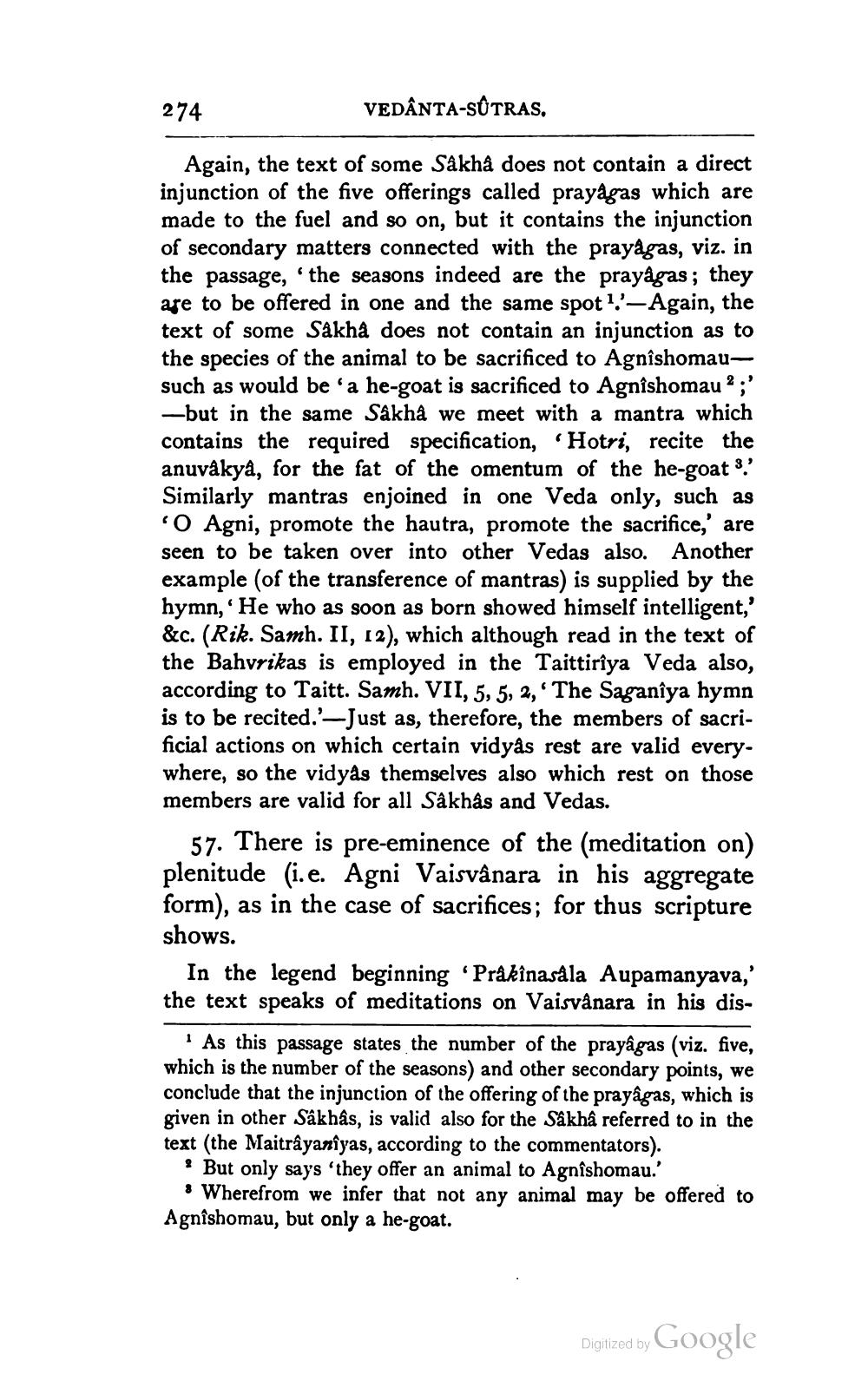________________
274
VEDÂNTA-SÛTRAS.
Again, the text of some Sakhả does not contain a direct injunction of the five offerings called prayāgas which are made to the fuel and so on, but it contains the injunction of secondary matters connected with the prayagas, viz. in the passage, the seasons indeed are the prayagas; they are to be offered in one and the same spot 1.'-Again, the text of some Sakha does not contain an injunction as to the species of the animal to be sacrificed to Agnîshomausuch as would be a he-goat is sacrificed to Agnîshomau? ;'
- but in the same Såkhå we meet with a mantra which contains the required specification, Hotri, recite the anuvâkyà, for the fat of the omentum of the he-goats' Similarly mantras enjoined in one Veda only, such as
O Agni, promote the hautra, promote the sacrifice,' are seen to be taken over into other Vedas also. Another example (of the transference of mantras) is supplied by the hymn,'He who as soon as born showed himself intelligent,' &c. (Rik. Samh. II, 12), which although read in the text of the Bahvrikas is employed in the Taittiriya Veda also, according to Taitt. Samh. VII, 5, 5, 2, 'The Saganîya hymn is to be recited.'-Just as, therefore, the members of sacrificial actions on which certain vidyas rest are valid everywhere, so the vidyas themselves also which rest on those members are valid for all Sâkhâs and Vedas.
57. There is pre-eminence of the (meditation on) plenitude (i.e. Agni Vaisvânara in his aggregate form), as in the case of sacrifices; for thus scripture shows.
In the legend beginning Pråkinasala Aupamanyava,' the text speaks of meditations on Vaisvanara in his dis
1 As this passage states the number of the prayâgas (viz. five, which is the number of the seasons) and other secondary points, we conclude that the injunction of the offering of the prayagas, which is given in other Sakhâs, is valid also for the Sakhâ referred to in the text (the Maitrayanîyas, according to the commentators).
? But only says 'they offer an animal to Agnîshomau.'
• Wherefrom we infer that not any animal may be offered to Agnîshomau, but only a he-goat.
Digitized by
Digilzed by Google




